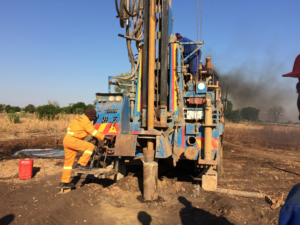
Menu
OrientMCT
Drilling Essentials For Non-Drilling Professional

The Drilling Essentials for Non-Drilling Professionals course is designed to provide participants with a foundational understanding of drilling operations and terminology, even if they do not have a technical background in drilling. This course aims to familiarize non-drilling professionals, such as managers, finance personnel, procurement officers, and environmental specialists, with the fundamental concepts and processes involved in drilling operations.
Throughout the course, participants will be introduced to the basic principles of drilling, including the objectives of drilling, the components of a drilling rig, and the roles and responsibilities of personnel involved in drilling operations. They will gain insights into the drilling life cycle, from well planning and design to well construction and completion.
Participants will learn about the different types of drilling methods commonly used in the industry, such as vertical drilling, directional drilling, and horizontal drilling. They will understand the factors that influence the selection of drilling methods and the benefits and challenges associated with each method.
Throughout the course, participants will learn about various drilling methods and techniques used in the industry, including rotary drilling, directional drilling, and offshore drilling. They will explore the functions and components of drilling rigs, such as drill bits, drill pipes, and drilling mud systems, and understand their roles in the drilling process.
The course will cover essential concepts related to well planning and design, including wellbore stability, casing and cementing operations, and well control techniques. Participants will gain insights into the importance of geology in drilling operations, as they learn about formation evaluation, pore pressure analysis, and wellbore hydraulics.
The course will cover drilling equipment and tools, including drill bits, drill strings, mud systems, and well control systems. Participants will gain a basic understanding of their functions and how they contribute to the drilling process. They will also learn about drilling fluids and their role in maintaining wellbore stability, controlling pressure, and facilitating drilling operations.
Participants will explore drilling terminology, including key concepts such as casing, cementing, logging, and well control. They will become familiar with industry jargon and technical terms commonly used in drilling operations, allowing them to communicate effectively with drilling professionals and understand technical reports and documents related to drilling activities.
The course will also address safety considerations in drilling operations, emphasizing the importance of hazard identification, risk assessment, and compliance with safety regulations and best practices. Participants will gain awareness of potential drilling hazards and the measures taken to mitigate risks and ensure the well-being of personnel and the environment.

By the end of the Drilling Essentials for Non-Drilling Professionals course, participants will have a foundational understanding of drilling operations, terminology, and key concepts. They will be better equipped to collaborate with drilling professionals, understand drilling-related discussions and reports, and make informed decisions regarding drilling projects. This course is valuable for non-drilling professionals who work in the oil and gas industry and interact with drilling operations but do not have a technical drilling background
Get In Touch!
Contact us for a quote or in case of any urgent queries please send us an email on: [email protected]
we will get back to you right away!